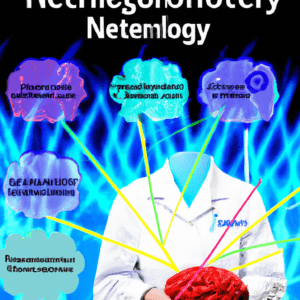Neurotechnology has come a long way since its humble beginnings. From developing brain-computer interfaces to deciphering the complexities of the human brain, neurotech has made remarkable strides in recent years. In this article, we will summarise the incredible advancements of neurotechnology, its potential to revolutionise healthcare, and its limitless possibilities for the future.
The Incredible Advancements of Neurotechnology
Neurotechnology has made incredible strides in recent years. For example, brain-computer interfaces (BCIs) have become more sophisticated, capable of helping people with spinal cord injuries and other disorders regain mobility. Deep brain stimulation has shown promising outcomes in treating Parkinson’s disease. And neuroimaging technologies have allowed us to understand the brain’s structure and function better.
But the advancements continue beyond there. Scientists are working on technology that can decode our thoughts, allowing us to communicate without speaking. Virtual and augmented reality is used to train surgeons and help people with anxiety disorders face their fears. The possibilities are limitless, and the future of neurotechnology appears promising.
Revolutionising Healthcare with Neurotech
Neurotechnology has the potential to revolutionise healthcare in countless ways. By developing advanced neuroprosthetics, doctors can help people with paralysis or amputations regain mobility. Brain stimulation technology can treat depression, anxiety, and other mental health disorders. And neuroimaging can help diagnose and treat conditions like Alzheimer’s disease.
But the most exciting development in neurotech is the ability to decode the brain’s signals to develop personalised treatments for patients. For example, scientists can better understand diseases and develop targeted therapies by analysing brain activity. This could lead to more effective treatments for everything from schizophrenia to PTSD.

Discovering the Limitless Possibilities of Neurotechnology
Neurotechnology is just scratching the surface of what’s possible. As we continue to develop more advanced technologies, we’ll be able to do things we never thought possible. For example, we can create brain implants that enhance memory or help people learn new skills. In addition, we can develop technologies that allow us to communicate with each other telepathically.
But the possibilities go beyond just improving human capabilities. Neurotech could also help us better understand the animal kingdom, allowing us to communicate with other species and learn from their experiences. In addition, we could develop advanced AI systems capable of understanding human emotions and developing more empathetic responses.
Neurotechnology is an exciting field that has the potential to change the world. As advancements continue, we’ll be able to unlock new capabilities and discoveries that we can’t even imagine yet. We are excited to see what neurotechnology has in store for us in the future.
Neurotechnology is on the verge of great discoveries that have the potential to revolutionise the world as we know it. From improving healthcare to discovering new possibilities, neurotech prospects are limitless. As we continue to explore this exciting field, we’ll be able to develop new technologies that can help us better understand the human brain and unlock new ways of thinking and communicating.
